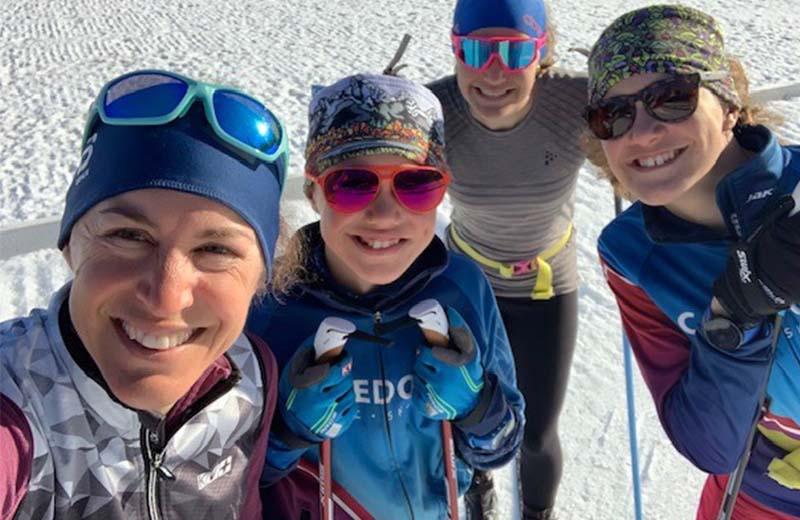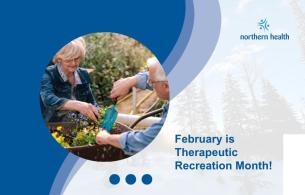No aspect of our lives has been left untouched by COVID-19, whether it’s impacted us socially, professionally, or even in the ways we have fun in our lives.
Coaches and athletes have felt the impact, as well as those who participate in sports for fun and fitness at a community level. Unfortunately, studies have shown that one in four girls are not committed to return to sport after the pandemic.
This could affect their lives in many ways:
- Sports support physical health and mental well-being.
- They help us develop confidence and leadership skills.
- Playing sports allows us to connect with others and enjoy the benefits of growing together, achieving together, and learning to overcome disappointment when we fail together.
- Sports allow us outlets for our emotions and healthy avenues for taking risks and trying new things.
If girls don’t return to sport, they miss out on all of these life skills.
Tuppy Hoehn, Olympic biathlete, co-owner of Stride and Glide Sports, coach, and mother of three girls, says this conversation is one they’re having all the time in sports, but she says a lot can be done.
Positive role models make a difference
“Girls need to see positive female role models in coaching and in their fellow athletes, both at their current level of sport and in high performance sport,” she says.
Women can take action to support the girls in their lives by volunteering to coach, or by volunteering on the board of a sports organization. Voices that can speak to a girl’s experience in sport are vital, both on the sidelines and at the centre of a sports organization.
“Coaches need to recognize that female athletes may have different reasons for participating in sport,” says Tuppy, “and that they may respond to different cues than boys do.”
Women can make a difference by coaching, or simply by being available for conversations with girls who show interest in sport or whose interest in sport might be flagging.
Talk about experiences, emotions, and the ups and downs of sports
“Communicating with girls about why they’re there and what their goals are can help coaches build programs that allow girls to excel and to be lifelong participants in sports,” says Tuppy.
Even a conversation on the drive home after a game can be important – an attentive grownup in a girl’s life who listens and responds to the ups and downs of after-school sports can provide perspective and support. What we do is as important as what we say: if a female parent or female guardian of a child is involved in sports, the child is 1.5 times more likely to play sports as well.
And there are many health and wellness benefits of family-based sports activities for children as well: hiking as a family, canoeing, or taking part in co-ed soccer with your adult child all make it much more likely that sports will become a lifelong pursuit.
Get involved!
What can you do to help girls return to sports? A new report from Canadian Women & Sport, COVID Alert: Pandemic Impact on Girls in Sport report offers many ideas. On the small scale, build awareness in the girls in your life about the broad variety of sports available to them. Encourage their interests, and offer them choice and autonomy in what to play. Emphasize effort and not perfection. Highlight the joys of the game, the pleasure in running around after a ball on a summer night, or the chance to socialize with friends while at practice.
On a larger scale, donate time or money to organizations that support women in sports. Be involved in the design and delivery of sports programs that are supportive of girls and women. Seek training to become a coach or to learn more about providing sports environments that support healthy social connections and foster belonging.
In your sports organization, ensure zero-tolerance policies on weight and body commentary, and support learning in coaches to emphasize effort, skill development, and alternatives to comparison with other participants.
Most of all, talk with the girls in your life and find out what barriers they face when returning to sports. Sometimes barriers are personal – they may be worried they’ve lost abilities while sports were shut down during the pandemic, or they’re not sure their friends will be there. These challenges can be overcome with care and support.
But sometimes barriers are about access, and these can be more challenging. As a society, we need to be aware that a child may not return to sports because of the cost, or because they don’t see themselves reflected in sport.
However, we can have an impact in these areas as well. For example, you can donate to Jumpstart at the checkout at Canadian Tire, or share accounts on social media with the kids in your life that show people of colour hiking and climbing, and women achieving success in sport with any body type.
Sports provide vital health benefits for everyone. No child should miss out. Let’s change the pandemic outcomes by addressing this challenge side by side with girls.
Learn more
Sources and resources for girls, including those who are black, Indigenous, or people of colour:
- Report from Canadian Women & Sport: COVID Alert: Pandemic Impact on Girls in Sport
- Girls in sport page on the Jumpstart site
- Canadian Women & Sport
- Research Hub for Gender and Equity in Sport
Inspiring Women in Sports Instagram accounts:














Comments